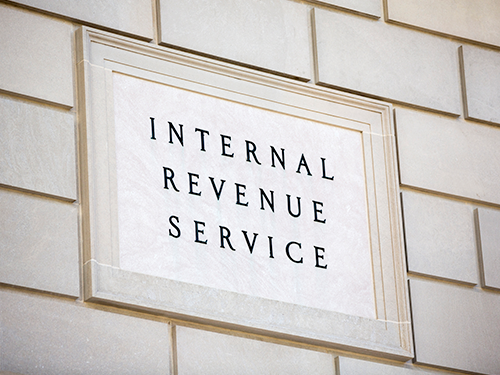Tax Debt & Bankruptcy: How IRS Tax Debt is Handled in Chapter 7 and Chapter 13 Cases

Understanding Tax Debt in Bankruptcy
One of the most common myths about bankruptcy is that tax debts are never dischargeable. While it is true that tax debts are treated differently from typical unsecured debts like credit card balances or medical bills, some tax obligations can indeed be discharged under specific circumstances. The way tax debt is handled depends on whether you file for Chapter 7 or Chapter 13 bankruptcy.
Chapter 7 Bankruptcy and IRS Tax Debt
Chapter 7 bankruptcy is known as liquidation bankruptcy. It is designed to quickly discharge unsecured debts and allows individuals to gain a fresh start within a few months. However, tax debts in Chapter 7 are only dischargeable if they meet strict qualifications.
To discharge IRS income tax debt in Chapter 7, the debt must meet what is commonly referred to as the “three-year, two-year, 240-day rule.” First, the tax return must have been due at least three years before filing. Second, you must have filed that tax return at least two years before filing for bankruptcy. Finally, the IRS must have assessed the tax at least 240 days before filing.
If these criteria are met, income tax debts may be discharged. However, it is crucial to note that these rules apply only to federal income tax debt. Payroll taxes, fraud penalties, and trust fund taxes are never dischargeable in Chapter 7 bankruptcy. Moreover, if the IRS has filed a tax lien before you file, even if the debt is discharged, the lien remains attached to your property, and you will need to pay it off to clear the title if you sell or refinance.
For example, if you owe taxes from four years ago, filed the return two years ago, and the IRS assessed the debt over a year ago, that tax debt could qualify for discharge in Chapter 7. This helps debtors who feel trapped by old IRS balances they simply cannot pay.
Chapter 13 Bankruptcy and IRS Tax Debt
Chapter 13 bankruptcy, often called a wage earner’s plan, allows individuals with regular income to restructure their debts into an affordable three-to five-year repayment plan. Unlike Chapter 7, Chapter 13 does not immediately discharge debts but provides a structured plan to repay them, often partially.
Tax debts are categorized in Chapter 13 as either priority or non-priority claims. Priority tax debts, which include recent tax debts (generally those incurred within the last three years), must be paid in full through the plan. Non-priority tax debts, often older debts that meet the discharge criteria, are treated like unsecured debts such as credit cards. This means they may be paid only a small percentage of their balance and discharged upon successful plan completion.
One significant benefit of Chapter 13 for tax debtors is the automatic stay. This stops IRS collection actions, including garnishments and levies, as soon as the bankruptcy case is filed. Additionally, the repayment plan prevents penalties and interest from accumulating on discharged non-priority tax debts, giving you breathing room to manage payments without further escalation.
For example, if you owe taxes from two years ago and taxes from five years ago, your plan would pay the two-year-old taxes in full as priority debt, while the five-year-old taxes may be classified as unsecured non-priority debt and could be discharged after you complete your plan.
Why Bankruptcy May Be Preferable to IRS Installment Agreements
Many people attempt IRS installment agreements before considering bankruptcy. While installment plans are a valid solution for some, they often do not address the root problem of overall debt load and provide no protection from interest and penalties that continue to accrue.
In contrast, Chapter 13 provides court protection against collection efforts, freezes penalty accumulation on dischargeable debts, and may reduce the total amount paid on older tax debts. For debtors with significant unsecured debts in addition to IRS obligations, bankruptcy may be a more comprehensive solution than negotiating solely with the IRS.
The Role of Tax Liens in Bankruptcy
Even if a tax debt is dischargeable, an IRS lien recorded before bankruptcy filing remains attached to your property. While bankruptcy can eliminate your obligation to pay the debt, the lien survives. This means that if you own real estate with a recorded tax lien, the IRS retains a secured claim against your property’s equity. You would need to resolve the lien before selling or refinancing.
In Chapter 13, you can pay off the secured lien through the repayment plan, which may provide more favorable terms than direct negotiation with the IRS. Consulting a bankruptcy attorney is critical to strategizing lien resolution within your case and protecting your property from forced sale.
How Sirody Bankruptcy Center Helps Clients with Tax Debt
At Sirody Bankruptcy Center, we understand how frightening and overwhelming IRS tax debt can feel. Many of our Maryland clients come to us believing bankruptcy cannot help them with tax obligations. In reality, with proper analysis and legal planning, bankruptcy may provide powerful relief options.
Our attorneys conduct detailed tax dischargeability analyses to determine whether your IRS debts qualify for discharge under Chapter 7. If Chapter 13 is more advantageous, we design structured repayment plans that meet IRS requirements while protecting your income, home, and assets from aggressive collections.
We know the IRS process and understand how local bankruptcy trustees handle tax claims in Maryland courts. This experience allows us to craft effective solutions, negotiate where necessary, and ensure that your filing meets all procedural and legal standards for successful debt resolution.
Want Financial Relief?
At Sirody Bankruptcy Center, our dedicated team specializes in Chapter 7 and Chapter 13 filings, helping clients across Maryland eliminate overwhelming tax debts and reclaim financial stability. If you are burdened by IRS tax debt and want to understand whether bankruptcy can help, contact us today. Our attorneys will review your situation in detail and guide you through every step!
